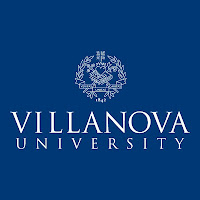University Alliance Online Introduces MP4 Download Availability for all Online Certificate Programs Offered through Villanova, Tulane, Notre Dame and the University of San Francisco
TAMPA, Fla., March 2, 2010 – With the advent of mobile learning technology and the rising demand for virtual m-learning classroom applications, the University Alliance Online, a global leader in interactive professional education continues to be on the cutting edge of technology.
Now, students attending Villanova University, Tulane University, the University of Notre Dame and the University of San Francisco can take their online learning mobile thanks to the new MP4 course lecture downloads for all online certificate programs.
According to the “2010 Horizon Report” by the New Media Consortium (NMC), the mobile market is booming. Over a billion new phones are produced each year, and thousands of applications available for virtually any smart phone – with more entering the market each day.
“Today, people expect anytime, anywhere access to data and services that used to be available only on a desktop,” said Adrian Marrullier, Executive Vice President and Chief Marketing Officer of University Alliance Online. “The portability of mobile devices and their ability to store and play MP3 and MP4 files makes them ideal tools for mobile learning.”
Students currently utilizing the MP3 audio feature for Villanova’s online certificate programs are touting the added benefits of the new downloadable MP4 video formats.
“I really enjoy the online learning experience and especially the new MP4 video download feature,” said Dafe Ojaide, a business professional completing Villanova’s Six Sigma online Master Certificate program. “I am always on the go so the ability to download my classes onto my iPod and Blackberry is perfect for my busy schedule.”
The MP4 feature supports mobile learning by offering course lectures in video formats. Students in the programs can simply select the online certificate course files they want, download them to their computers, and transfer the files to their iPods, iPhones, Blackberries, Droids or other mobile devices.
The University Alliance’s state-of-the-art e-learning system immerses students in a multimedia environment that allows them to study at their convenience. The advantages of 100% online and mobile learning include:
- Virtual Classroom – Two-way voice over IP, instant messaging and shared virtual whiteboards allow students to interact with fellow classmates and faculty in real time. It’s just like being in a real classroom, but this one is live on the internet.
- Streaming Video Lectures – In addition to the MP3 and new MP4 media download features, participants can watch and learn from industry professionals as they deliver lectures and course material 100% online via streaming video or on CD-ROM.
- Message Boards – Students can interact with instructors and classmates on key topics and class assignments.
- Live Chat Rooms and Email – Being able to collaborate and communicate with faculty and classmates makes online learning convenient.
About University Alliance Online
The University Alliance (UA) facilitates the promotion and online delivery of associate’s, bachelor’s and master’s degrees as well as professional certificate programs from the nation’s leading traditional universities and institutions. Powered by UA’s technology and support services, its university partners have surpassed 300,000 online enrollments – making UA the largest facilitator of e-learning in the country. All University Alliance partners are consistently rated among America’s best universities in national publications such as U.S. News & World Report and BusinessWeek. University Alliance partners include Villanova University, the University of Notre Dame’s Mendoza College of Business, Tulane University’s Freeman School of Business, the University of San Francisco, the University of South Florida, Florida Institute of Technology,
The University of Scranton, Dominican University and Jacksonville University.
Contact Information:
Sandy Levine, VP of Marketing Services
Bisk Education/University Alliance Online
813-621-6200
http://www.universityalliance.com
# # #






